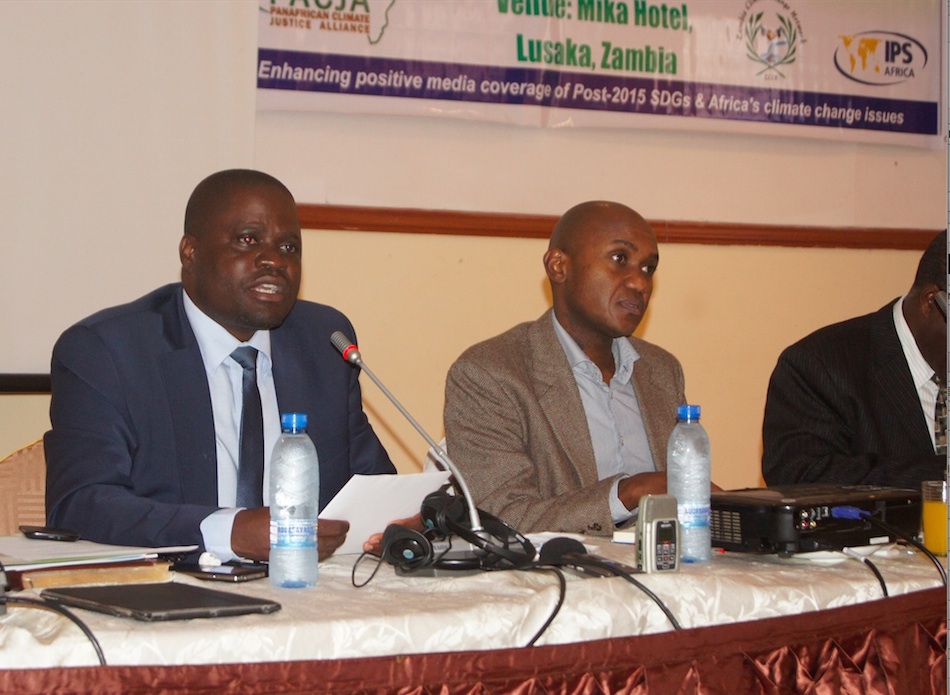
By Atâyi Babs
The Republic of Zambia will not be stampeded into submitting its Intended Nationally Determined Contributions (INDCs) to the UNFCCC secretariat in a rush.
Lungu Mfumu Richard of the Zambian Ministry of Lands, Natural Resources and Environmental Protection disclosed this in Lusaka at a media parley organised by the Pan African Climate Justice Alliance (PACJA) recently.
The need to take full advantage of the September 30th deadline as extended by the secretariat and to avoid the mistake made by Gabon which accoridng to Lungu, “rushed its submission and became the first African country to do so only to apply for withdrawal recently”have informed Zambia’s decision to carefully prepare and consider its INDCs before eventual submission.”
“Zambia will not rush into submitting INDCs that will not respect her national sovereignty, principles of the framework convention on climate change and the aspirations of 13 million Zambians,” Lungu added.
Justifying his country’s commitment and readiness to tow the low carbon development pathway, Lungu cited the recent formulation of a National Climate Change Policy for Zambia and the mainstreaming of climate change issues into the 7th National Development Plan as key indicators of the country’s move towards climate resilience.
Sam Ogallah of PACJA restated the alliance’s long standing commitment to unifying and coordinating isolated civil society efforts on climate change advocacy in Africa and collaborating with governments and regional bodies to build an enhanced African profile that assures the continent’s visibility in international climate dialogue processes.
It was in furtherance of this, according to Ogallah, that the handbook on INDCs was published. He therefore urged African governments to take advantage of the publication and prepare INDCs that reflect both national and regional aspirations within the given time.
Ogallah further rallied all present to identify and support the common African position on limiting global temperature levels to 1.5 degrees celsius, noting that with 2.0 degrees of warming, total crop production could be reduced by 10 per cent in sub-Saharan Africa, and the undernourished population could increase by at least 25 per cent by 2050.
Meanwhile, the goal of international climate negotiations is “to avoid dangerous atmospheric concentrations of greenhouse gases.”
In 2010, Parties to the United Nations Framework Convention on Climate Change formally recognised that the “long term goal” of the convention was to hold the increase in global average warming to below 2 degrees Celsius above pre-industrial levels.
Is 2 degrees Celsius therefore the safe limit above which climate change becomes “dangerous”? The Intergovernmental Panel on Climate Change (IPCC), comprising more than 70 scientists, experts, and climate negotiators recently released a final report concluding that 2 degrees Celsius is “inadequate” as a safe limit.
The report will feed into a review of the 2 degrees Celsius limit, including discussions on a tougher 1.5 degrees Celsius warming limit in the new climate agreement expected in Paris in December.










